Khiara M. Bridges Talks Race, Law, and Reproductive Rights at UC Santa Barbara
UC Berkeley School of Law Professor Gives Lecture Titled ‘Race in the Roberts Court: Dobbs v. Jackson Women’s Health Organization’
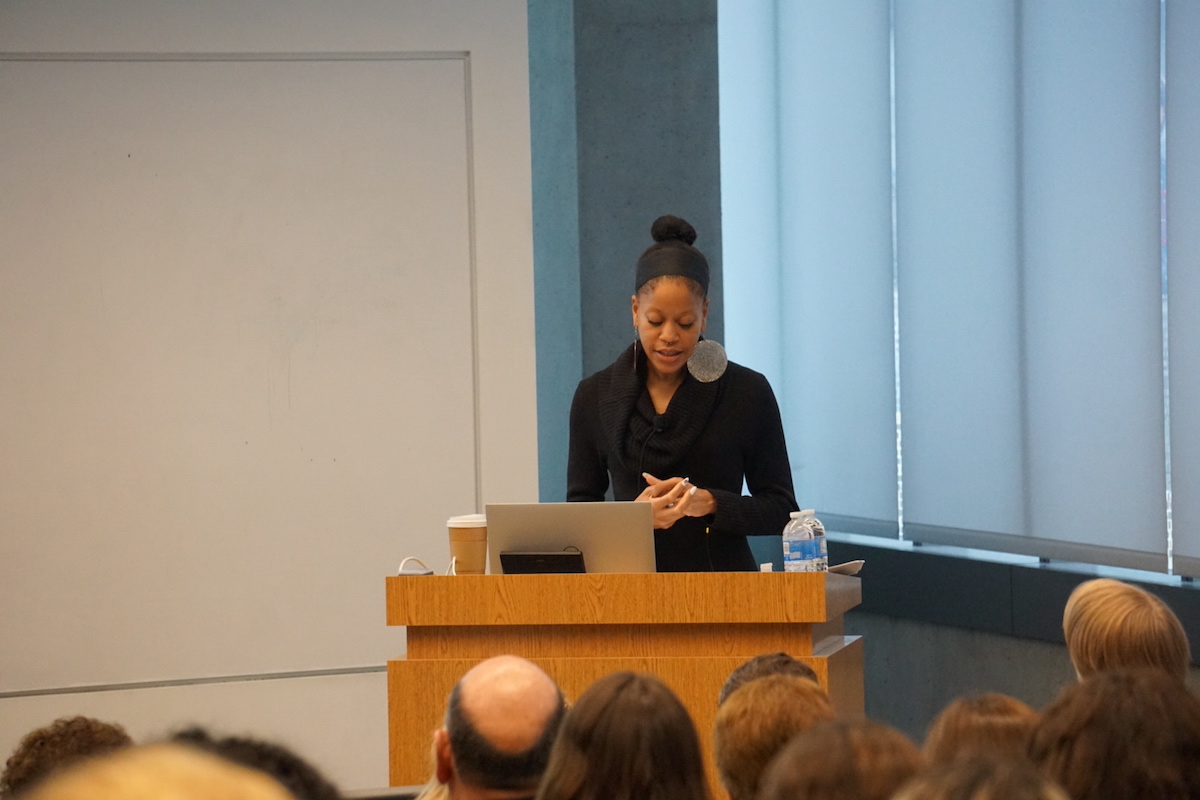
The Walter H. Capps Center at UC Santa Barbara hosted Khiara M. Bridges, professor at the UC Berkeley School of Law, for a guest lecture event on campus on Friday, January 19, at UCSB’s Henley Hall. Bridges, whose scholarship, according to the Capps Center website, “focuses on race, class, reproductive rights, and the intersection of the three,” gave a 90-minute lecture on her legal and Constitutional arguments surrounding the current national debate on reproductive rights in the United States.
Before serving on the staff at Berkeley’s School of Law, Bridges attended Spelman College, a historically Black college and university located in Atlanta, Georgia, where she graduated in three years as valedictorian. From there, she received her JD from Columbia Law School and her PhD, with distinction, from Columbia University Department of Anthropology.
According to her bio on Berkeley’s Law School homepage, her work has appeared in numerous law reviews, and she is also the author of three books: Reproducing Race: An Ethnography of Pregnancy as a Site of Racialization (2011), The Poverty of Privacy Rights (2017), and Critical Race Theory: A Primer (2019).
Friday’s event was co-sponsored by UCSB’s departments of Black Studies and Feminist Studies, UCSB Feminist Futures Initiative, UCSB Health Humanities, UCSB Legal Humanities Initiative, and Santa Barbara Women’s Health Coalition. Titled “Race in the Roberts Court: Dobbs v. Jackson Women’s Health Organization,” the lecture was based on an article Bridges published in the Harvard Law Review and “reflects the ruminations on where we are as a country with abortion and reproductive rights.”
Bridges began by giving an overview of reproductive justice in America legal jurisprudence, then delved into interrelationship between racial and socioeconomic issues and reproductive rights, particularly faced by Black women in the United States.
The main focus of the lecture was on the landmark United States Supreme Court ruling in Dobbs v. Jackson Women’s Health Organization (2022), which overturned Roe v. Wade (1973). In particular, Bridges stressed the disproportionate impact she believes the Supreme Court’s ruling in Dobbs will have on Black women, who have the highest abortion rate in the U.S.
Her lecture contended that racial equality and abortion rights, as well as other forms of reproductive health, are undoubtedly tied together. The most recent ruling in Dobbs, Bridges argued, is an indication of the Supreme Court’s belief that “race is irrelevant to the question at issue.”
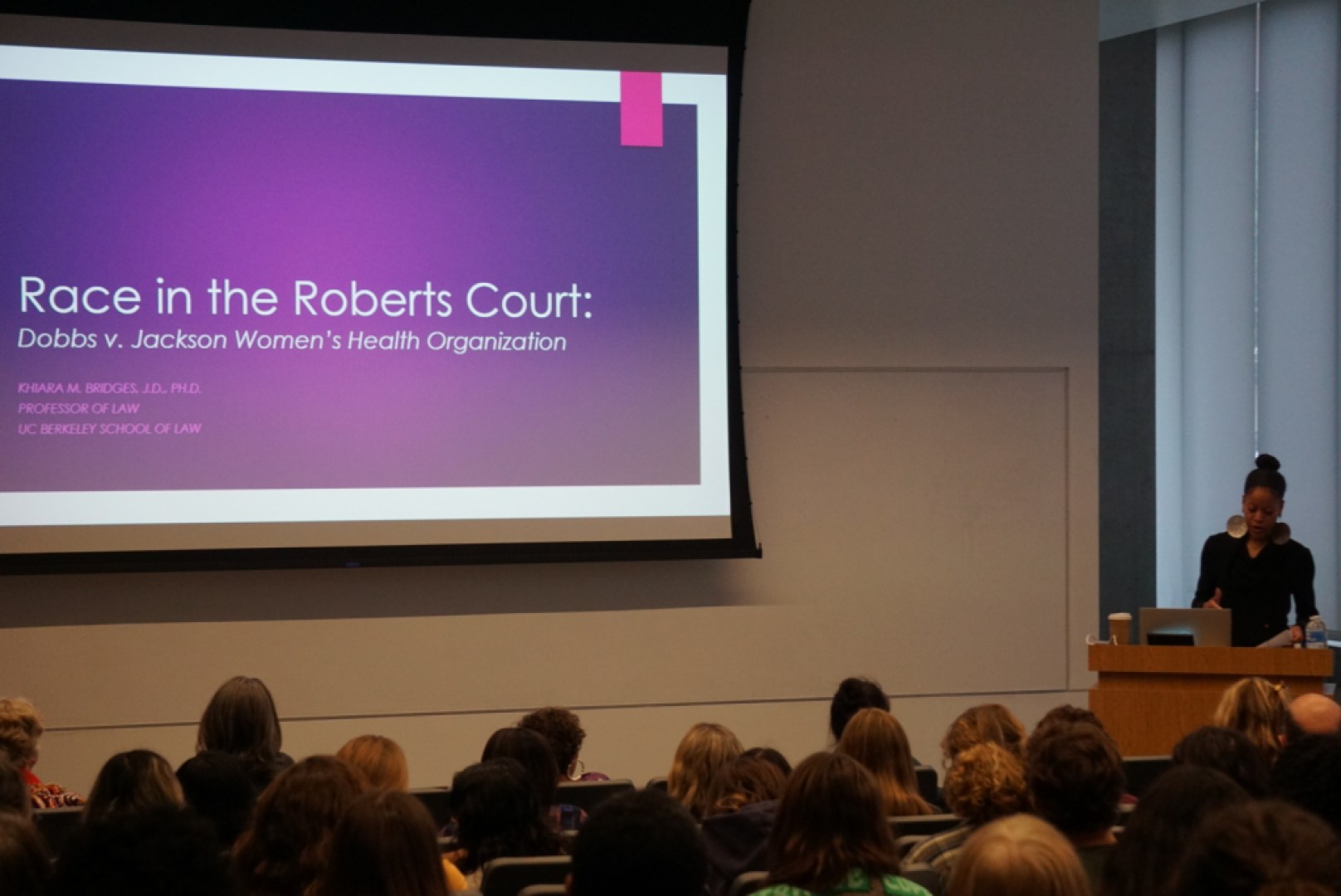
She continued that as a result of the ruling, more and more Americans will seek abortions in states where the practice is legal, which she says creates difficult barriers for Black people, who are two times as likely to bear poverty burdens in the U.S.
Additionally, in states where abortion access is prohibited, Bridges says that more self-administered abortions will occur and could lead to increases in maternal mortality or severe maternal morbidity. That, she argued, is particularly threatening to Black women, who are three times more likely in the U.S. to die during childbirth than their White counterparts.
Though the “Court will hand down decisions that will shape American life,” concluded Bridges. “Dobbs said not a word about the numerous and compounded racial harms when safe and legal abortions are inaccessible…. Abortion rights are necessary if racial equality is to be achieved.”
Kari Robinson, associate director of Health Humanities and Legal Humanities at UCSB and a partner in the Santa Barbara Women’s Health Coalition (SBWHC), said after the lecture, “One of the most important takeaways from Professor Bridges’s lecture is that women of color have worked tirelessly to ensure reproductive freedom.”
The SBWHC is a newly founded group in Santa Barbara composed of clinicians and corporate and industry professionals whose mission sets out “to advance the quality and outcomes of women’s health care throughout the community.”
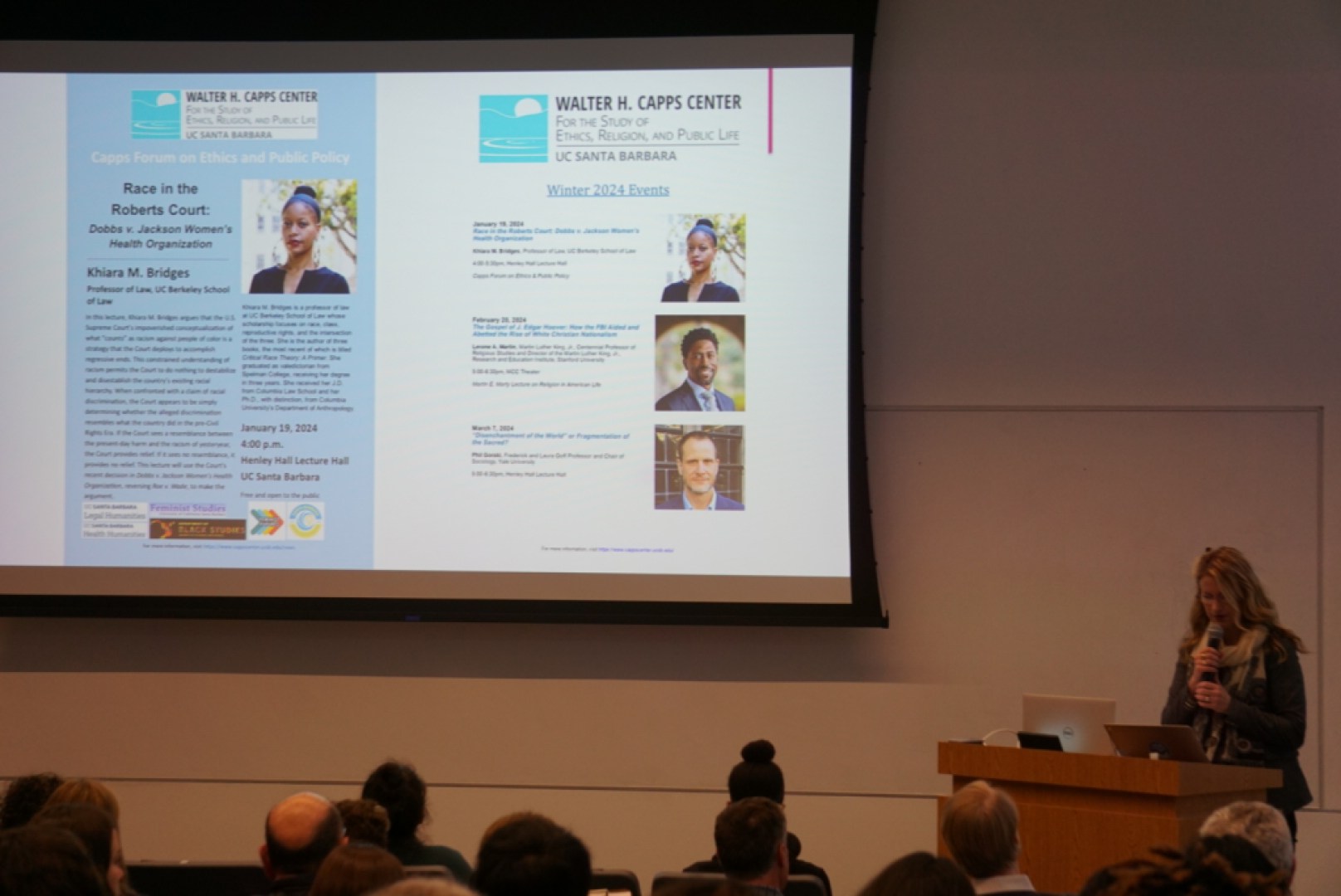
“We are at a pivotal historical moment when that access to reproductive health is deeply threatened,” Robinson said. “And to the degree lawyers, health-care providers, journalists, academics, artists, and community members can work together to understand the depth and breadth of structural racism and misogyny, we will have a much better chance of improving reproductive health care and the conditions of parenting within our community.”
Asked how she thought Bridges’s lecture and her own work at UCSB correlated to the Santa Barbara community and state-wide conversation on reproductive rights and racial justice, Robinson replied, “For me, working with the SBWHC and the Legal & Health Humanities Initiatives to connect the health-care community with university scholars and students is one form of advocacy that might lead to educational opportunities, such as Professor Bridges’s lecture. More broadly, the initiatives aim to connect faculty across departments and even divisions whose work might build and benefit from being in conversation.”
Events such as Bridge’s lecture will continue throughout the school year at the Capps Center on UCSB’s campus. More information can be found on their website.
Premier Events
Sun, Apr 28
6:00 PM
Santa Barbara
AHA! Presents: Sing It Out!
Thu, May 02
5:00 PM
Santa Barbara
Things with Wings at Art & Soul
Sat, May 04
10:00 AM
Lompoc
RocketTown Comic Con 2024
Sat, Apr 27
11:00 AM
Santa Barbara
Santa Barbara Plant Fest
Sat, Apr 27
3:30 PM
Santa Barbara
Santa Barbara Trapeze Co and Unity Shoppe Spring Food Drive
Sat, Apr 27
8:00 PM
Santa Barbara
Beau James Wilding Band Live
Sun, Apr 28
11:00 AM
Santa Barbara
Santa Barbara Earth Day Festival 2024
Wed, May 01
7:30 PM
Santa Barbara
American Theatre Guild Presents “Come From Away”
Thu, May 02
5:00 PM
Santa Barbara
100th Birthday Tribute for James Galanos
Thu, May 02
5:00 PM
Santa Barbara
Meet the Creator of The Caregiver Oracle Deck
Fri, May 03
4:00 PM
Santa Barbara
Santa Barbara Fair+Expo “Double Thrill Double Fun”
Fri, May 03
8:00 PM
Santa barbara
Performance by Marca MP
Sat, May 04
10:00 AM
Solvang
Touch A Truck
Sun, Apr 28 6:00 PM
Santa Barbara
AHA! Presents: Sing It Out!
Thu, May 02 5:00 PM
Santa Barbara
Things with Wings at Art & Soul
Sat, May 04 10:00 AM
Lompoc
RocketTown Comic Con 2024
Sat, Apr 27 11:00 AM
Santa Barbara
Santa Barbara Plant Fest
Sat, Apr 27 3:30 PM
Santa Barbara
Santa Barbara Trapeze Co and Unity Shoppe Spring Food Drive
Sat, Apr 27 8:00 PM
Santa Barbara
Beau James Wilding Band Live
Sun, Apr 28 11:00 AM
Santa Barbara
Santa Barbara Earth Day Festival 2024
Wed, May 01 7:30 PM
Santa Barbara
American Theatre Guild Presents “Come From Away”
Thu, May 02 5:00 PM
Santa Barbara
100th Birthday Tribute for James Galanos
Thu, May 02 5:00 PM
Santa Barbara
Meet the Creator of The Caregiver Oracle Deck
Fri, May 03 4:00 PM
Santa Barbara
Santa Barbara Fair+Expo “Double Thrill Double Fun”
Fri, May 03 8:00 PM
Santa barbara
Performance by Marca MP
Sat, May 04 10:00 AM
Solvang

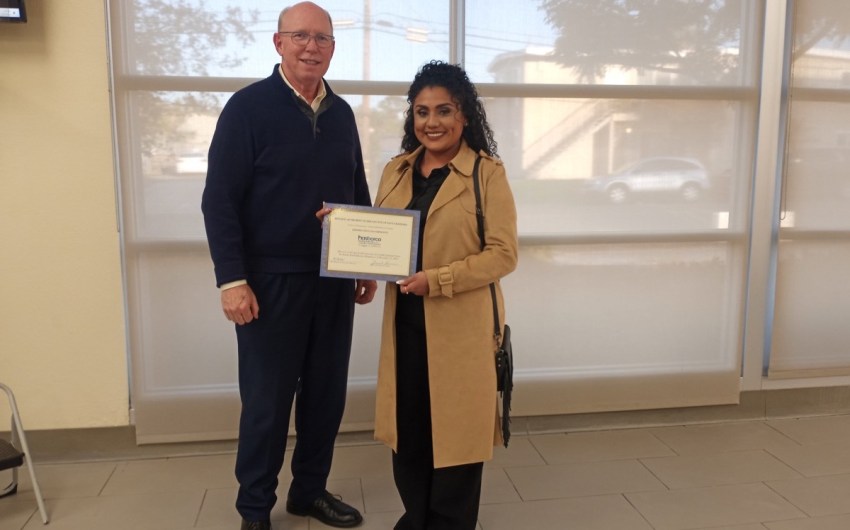
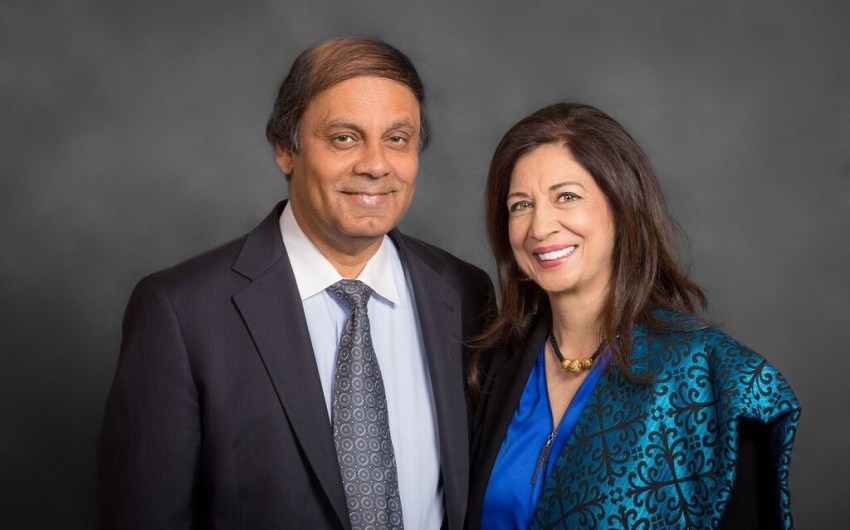
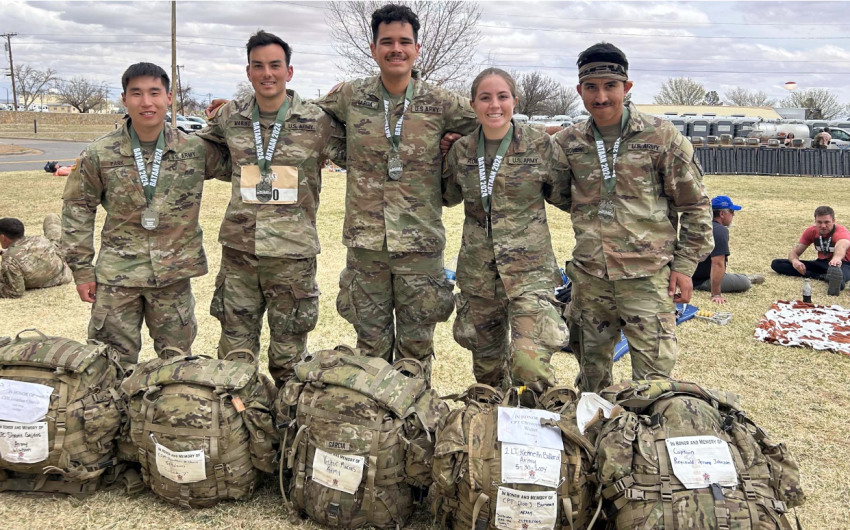
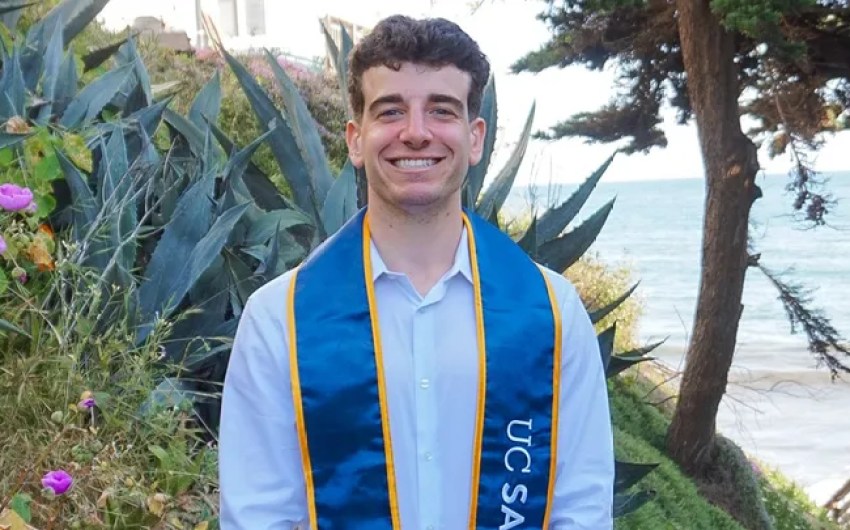

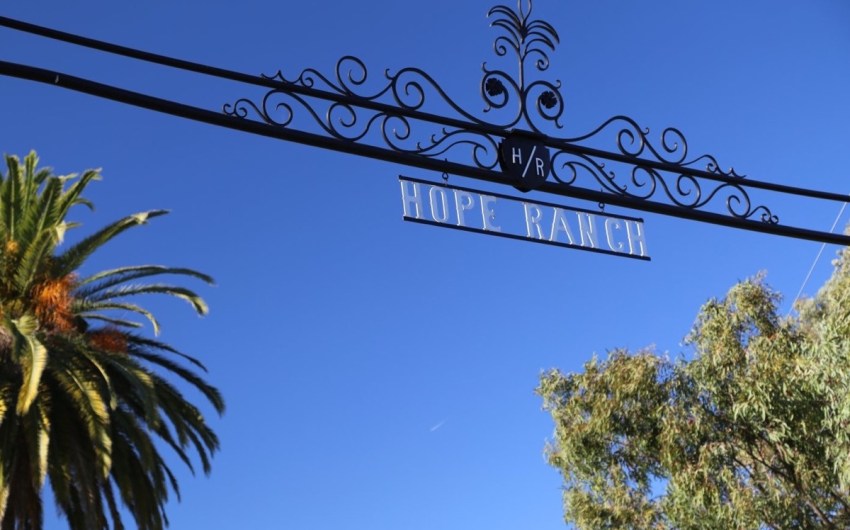



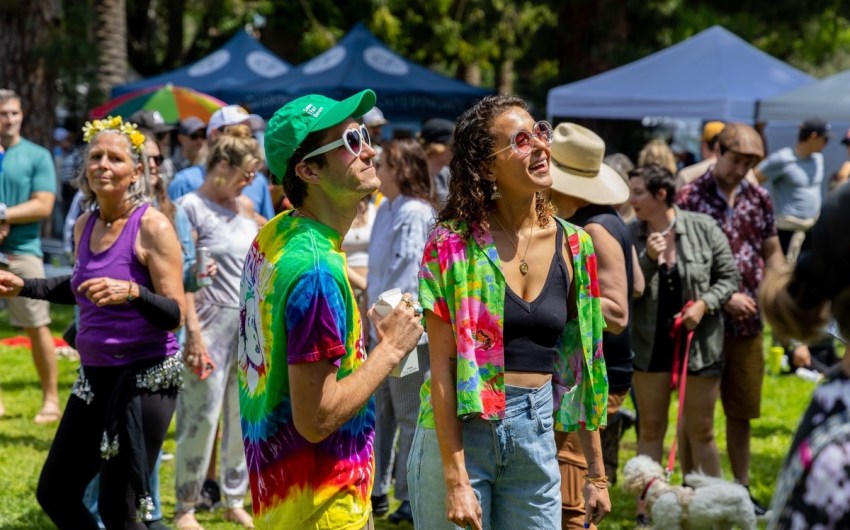

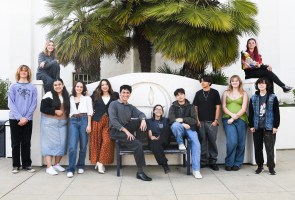












You must be logged in to post a comment.